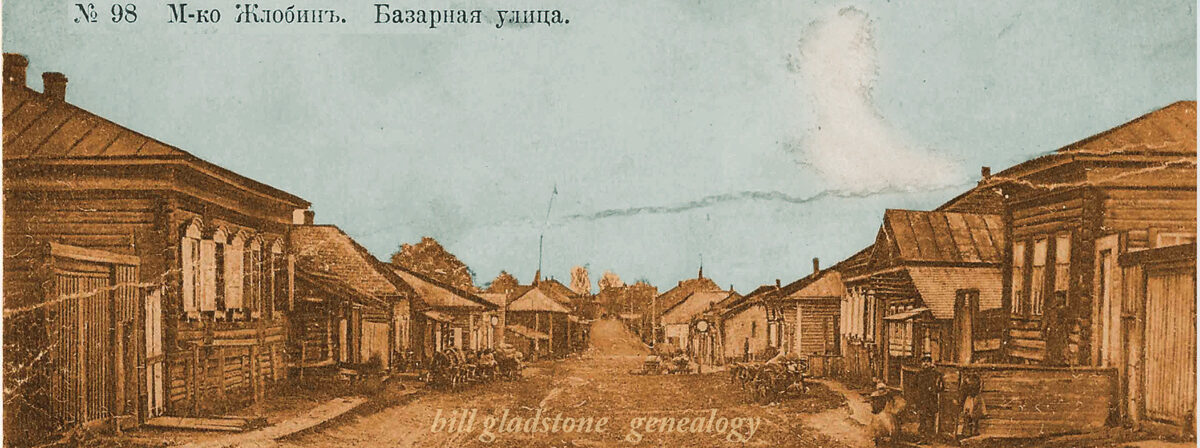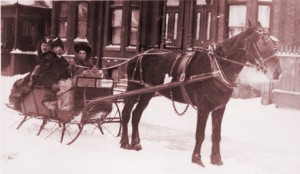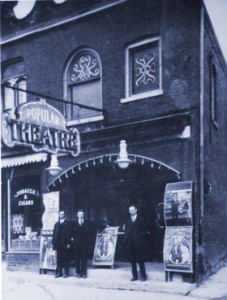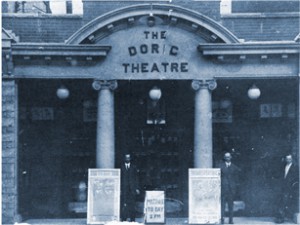From the Canadian Jewish News, May 4, 2006
Born in the East End of London, leading British cameraman Joe Rosenthal came to Canada about 1900 at the behest of the Canadian Pacific Railway to make Living Canada, a series of documentary films intended to stimulate immigration. The series was a popular success in Britain, and Rosenthal, who also made a dramatized version of Hiawatha while here, became enshrined as Canada’s first Jewish film industry pioneer.
Another was Bernard Allen, a jeweller from Pennsylvania whose son Jule came north about 1906 to scout out locations for a motion picture theatre. The Allens built their first theatre in Brantford, Ontario and within fifteen years had established a vast international movie circuit. Resettling in Toronto, they eventually built some of the city’s finest movie palaces, including the Tivoli, Parkdale, College, St. Clair, Beach and Hollywood.
N. L. Nathanson was another American who resettled in Toronto. He got started in the movie business by purchasing an old theatre, the Regent on Adelaide Street, and converting it into a deluxe movie house. That was in 1916. He eventually teamed up with the American mogul Adolph Zukor, with whom he established the Famous Players chain.
All these names appear in Stars of David, a superb monograph penned half a century ago by author-historian Hye Bossin. Also cited by Bossin as Jewish motion picture pioneers are Sam Lester and Harry Alexander, who were my father’s uncles, and their partner Morris Mentel. Beginning in 1909, the trio “ran a little cloak-and-suit manufacturing business” by day and operated some of Toronto’s first motion picture houses by night.
As Bossin notes, several other members of the intermarried Alexander and Lester clans also made their marks in the movies. Two more Lesters, George (Angell) and Harry, are also considered pioneers. A generation later George’s sons Lionel Lester and Robert Lester both entered the business; Lionel became a major force in the world of film distribution.
A wonderful old photo shows Mentel, Sam Lester and Alexander outside one of their (and the city’s) earliest theatres. At various times, they and their various associates and relations operated the Park, Royal, King, U-Kum, Dufferin, Bonita and the Doric (where, to the immense delight of his grandchildren, my great-grandfather David Alexander tended the candy counter).
In a memoir written about 1991, Lionel described the Royal Theatre, which operated during the First World War: “Admission was 10 cents and one cent war tax for adults, and five cents for children . . . . Besides my mother who sold tickets and my dad who collected them at the door, there was the projectionist and the piano player. The piano player watched the picture very carefully in order to play the proper music to fit the scene.”
Phyllis Bryce describes her father Sam Lester’s first theatre, situated in a little store on Dovercourt Road. “I can still picture it. He had a little projector and a white sheet that he used as a screen.”
Do you have any film pioneers in your family tree? Their stories are as fleeting as flickering lights on a screen, celluloid impressions lasting but a moment. We owe it to future generations to try to preserve their history. ♦
© 2012.
* * *
The original article drew this letter by response:
Morris King started the King Theatre
In the recent column “Some Early Film Pioneers,” one name is missing — Morris King, my father, who started the King Theatre on Dundas Street in Toronto.
When my uncle, Harry Alexander, couldn’t make a living, my father took him into the theatre and when there was not enough income for two families, Dad turned the theatre over to his brother-in-law.
As a teenager, I was the envy of my friends when I could pop into a movie palace by simply waving at an uncle. A free ride!
Joe King, Montreal
* * *
Another response:
I loved this article about Early Toronto Film Pioneers. I knew some of it but not all of it.
Did you know that when my grandfather [Harry Alexander] managed the Lansdowne theatre, because there were polio scares every summer, he built a little room beside the projectionist’s booth upstairs and put 5 seats in it for his 5 grandchildren? Tickets were 11 cents but of course we got in free. We felt so special.
Did you know also that when [my sister] Joy and I were about 3 or 4, he still had some vaudeville shows at the Lansdowne and he let Joy and me walk across the stage, sometimes even tap dance across the stage with the signs telling about the next act? My grandfather made fancy little costumes for us. Real vaudeville! Such an exciting childhood!
Thank you very much for sending the article to me. I really enjoyed it.
Barbara Organ, Toronto
* * *








